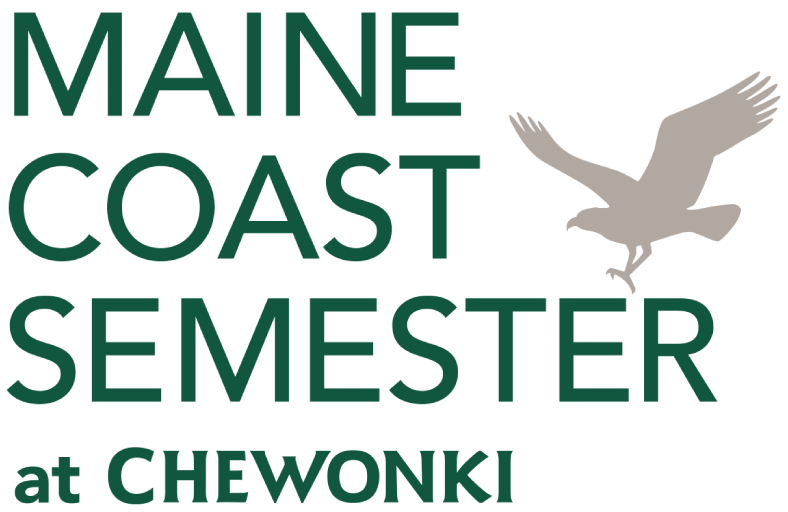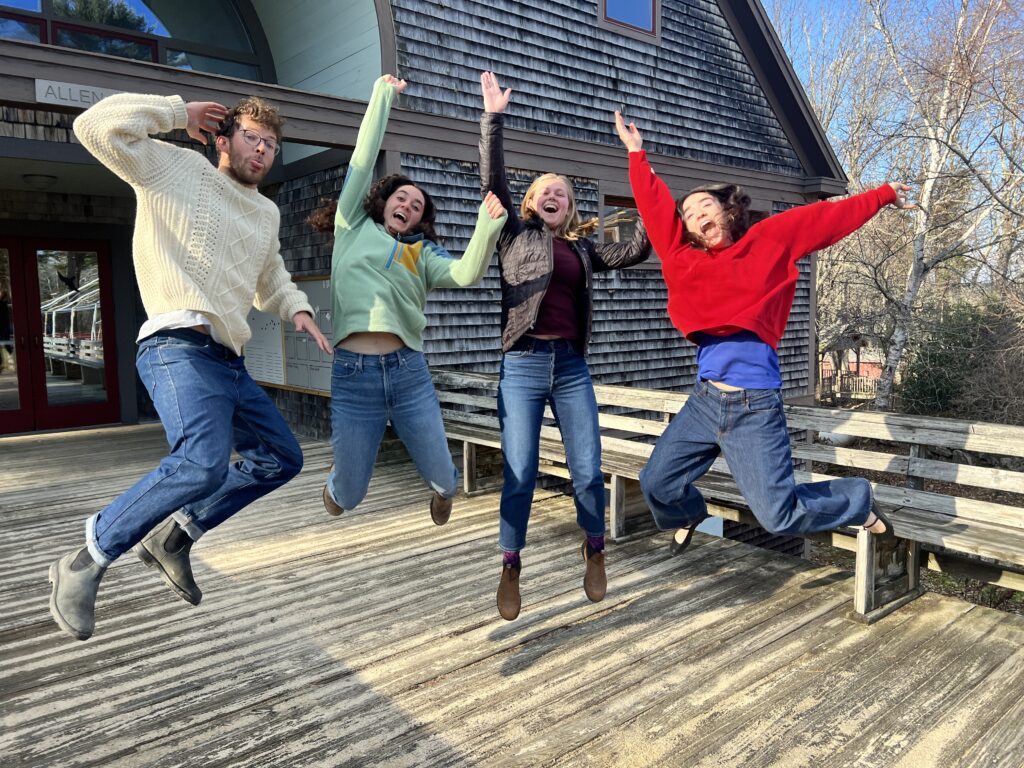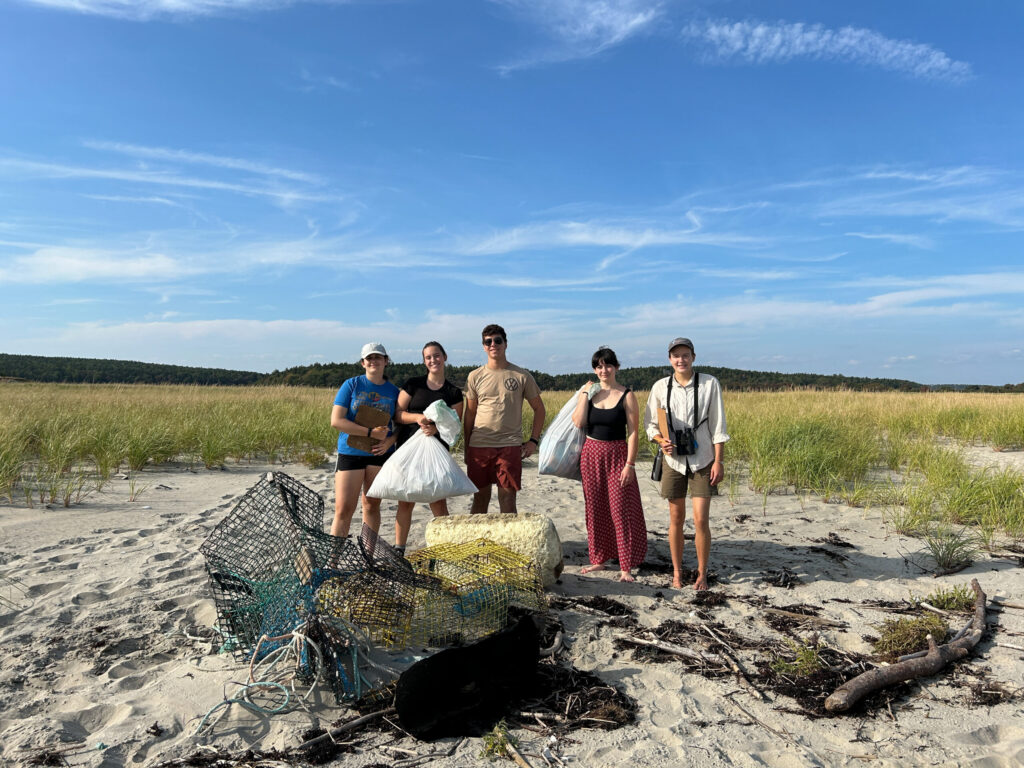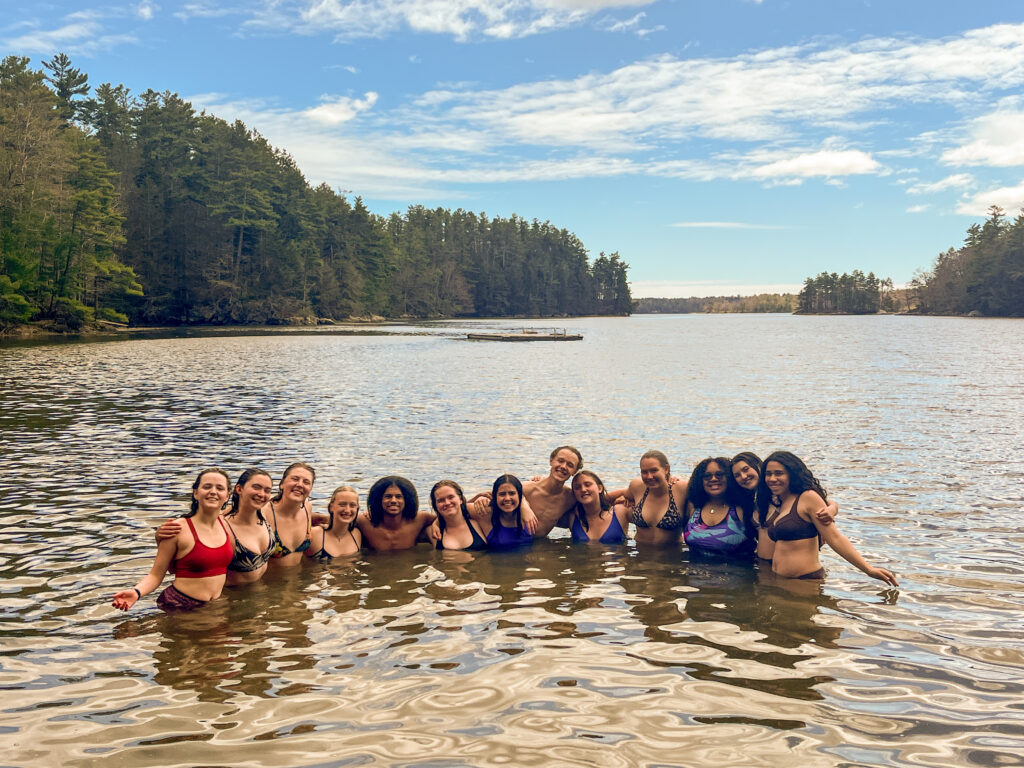The class options at Maine Coast Semester are really unique and interesting. I am encouraged to develop my critical thinking skills and challenged to participate in new ways. In French, Esther Kary is teaching us about the environmental impact of industrial farms. I love this course because I have the opportunity to practice my speaking skills and discuss issues that are important to me. My class is small–just four people–so we have more opportunities to speak, (and make mistakes!) than I do at home. I am currently a vegetarian, so sustainably sourcing my food is important to me. It’s upsetting to learn how conventional farms are run, but learning about this aspect of our economy helps me become more aware of where my food is coming from. I’m also learning so much new vocabulary related to food and farming.
This week, we’ve been discussing foie gras, which is a paste made from the liver of a force-fed duck or goose. Despite the cruelty inherent in the production of foie gras, it is consumed regularly on French holidays. It is interesting to discuss the moral implications of eating foie gras and the ecological impact of this centuries-old tradition. In discussing possible solutions, our class examed a Spanish farmer who produces a more sustainable foie gras where the ducks and geese eat excess grain voluntarily, resulting in a delicious final product! Even in such a short time, my speaking skills and confidence have greatly increased.
All semester students are required to complete a Human Ecology Capstone project – a four-month research project that results in a well-planned initiative to bring home and execute in our own communities. I’ve thought about a variety of possibilities, from composting in my home to sourcing my clothes more sustainably. I love that Chewonki is scientifically inclined and encourages me to research these topics and develop good interviewing skills so I can work with people at home to realistically execute my plan.
Anne, Ethical Culture Fieldston School, New York, NY













